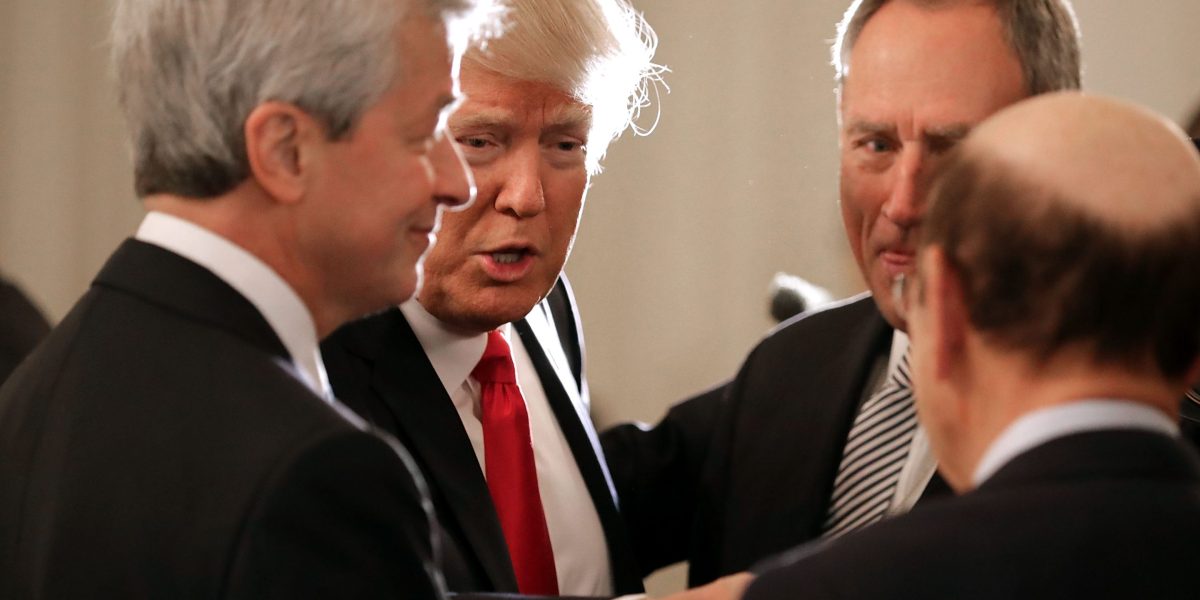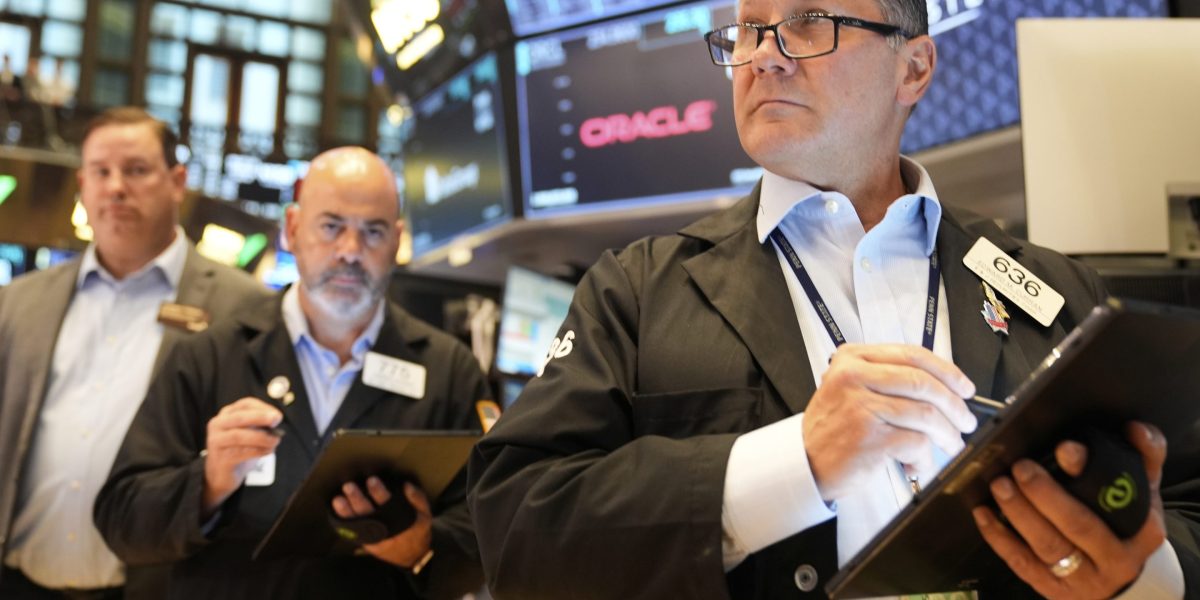President Donald Trump’s feud with Federal Reserve Chair Jerome Powell continues to escalate, as the president openly discussed firing Powell in meetings with Republican lawmakers and in public remarks. The episode has sent tremors through financial markets and drawn pointed warnings from JPMorgan Chase CEO Jamie Dimon, a leading voice on Wall Street, about the dangers of undermining the central bank’s independence.
On Tuesday evening, The New York Times was first to report, Trump waved a draft letter firing Powell during a meeting with House Republicans, and soliciting their opinions on whether he should proceed. The next day, Trump confirmed that was true: “I talked about the concept of firing him,” he said during an Oval Office meeting with Salman bin Hamad Al Khalifa, the crown prince of Bahrain.
“I said, ‘what do you think?’ Almost every one of them said I should,” Trump told reporters, insisting that he was “highly unlikely” to do it. The president’s motivations centers on Powell’s refusal to cut interest rates. Trump and several administration officials have more recently highlighted Powell’s management of a $2.5 billion renovation of the Fed’s headquarters, which Trump has called “sort of” a fireable offense. Trump still hedged on Wednesday, refusing to rule out firing Powell.
Pressure from inside the house
Just one day earlier, Treasury Secretary Scott Bessent, one name floated as a possible successor to Powell, both tried to tamp down speculation and confirmed that a “formal process” process to replace Powell was under way. “As President Trump said, he’s not looking to fire Chair Powell,” Bessent told Bloomberg. Bessent has offered measured criticism of the central bank, yet according to The New York Times, some of his comments have come close to breaking an “unwritten rule” that Treasury Secretaries steer clear of criticizing sitting Fed chairs.
Other administration officials have been much more direct, sometimes scathing in their broadsides at Powell. Kevin Hassett, Director of the National Economic Council and Russell Vought, Director of the Office of Management and Budget, and Bill Pulte, head of the Federal Housing Finance Authority, have all issued various criticisms centering on the Federal Reserve headquarters renovation.
The Dimon element
The prospect of presidential interference in the Fed has alarmed financial leaders. Jamie Dimon, CEO of JPMorgan Chase, delivered a blunt warning to Trump soon after Bessent’s comments: “The independence of the Fed is absolutely critical,” Dimon said in widely reported remarks. “and not just for the current Fed Chairman, who I respect, but for the next Fed Chairman. “Playing around with the Fed can often have adverse consequences, absolutely opposite of what you might be hoping for”.
Dimon’s comments came during JPMorgan’s earnings call, where he also criticized Trump’s tariff policies as a significant risk to the U.S. economy. The president’s persistent threats to fire Powell have not gone unnoticed by investors, either. News of the Oval Office meeting and the draft firing letter sent stocks jittery, with the S&P 500 and Dow Jones Industrial Average both falling to session lows before rebounding after Trump publicly downplayed the likelihood of a firing. The dollar also weakened sharply against major currencies, and bond yields rose as traders braced for potential upheaval at the Fed.
Market analysts warn that any move to oust Powell could trigger a crisis of confidence in U.S. monetary policy, potentially leading to a selloff in stocks, a collapse in the dollar, and higher borrowing costs for the government. The episode has also reignited debate over the legal limits of presidential authority to remove a sitting Fed chair, with a recent Supreme Court ruling suggesting Trump’s options may be limited in that regard.
Trump has previously responded to Dimon’s criticism by backing off certain policies. In April, for example, Dimon issued warnings, both in JPMorgan’s annual letter and in an interview with Maria Bartiromo on Fox Business, that Trump’s planned “reciprocal” tariffs would render a recession the “likely outcome.” Trump was soon posting on Truth Social to confirm that he had watched the interview and implored Americans to “BE COOL! Everything is going to work out well.” Still, Trump decided to pause the reciprocal tariffs for 90 days on the same day, April 9.
For this story, Fortune used generative AI to help with an initial draft. An editor verified the accuracy of the information before publishing.


